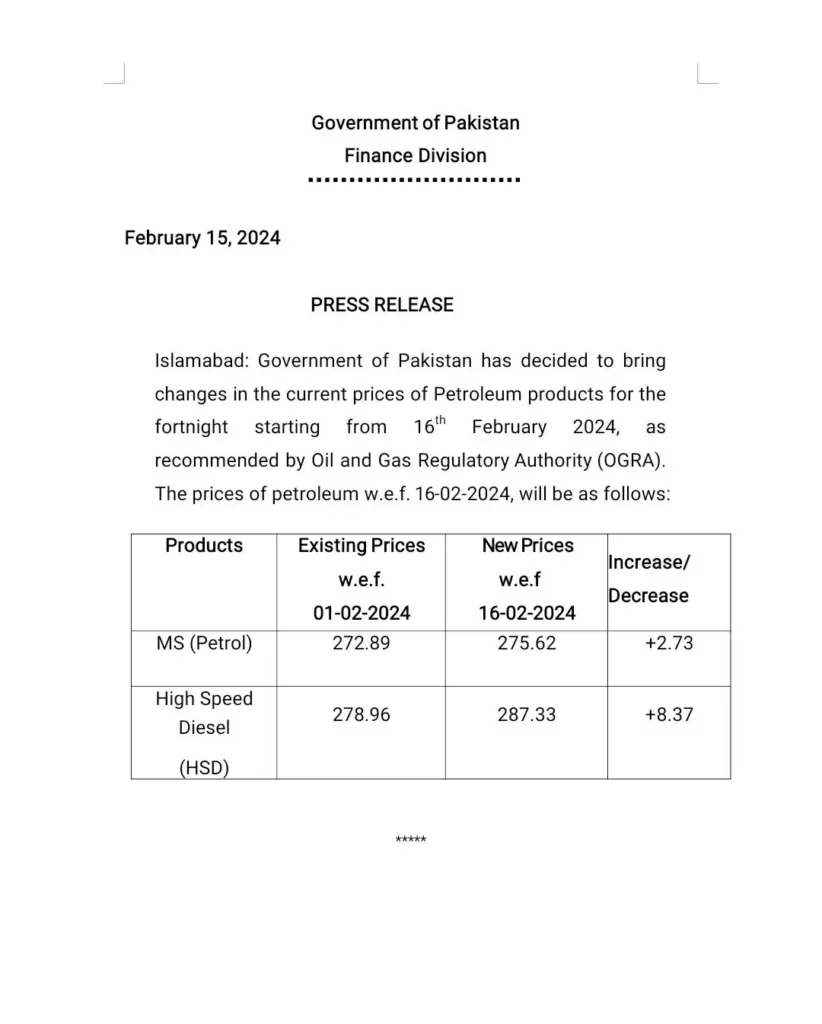Petrol Prices increased in Pakistan by Rs.2 and diesel by Rs. 8.
On Thursday, the government announced a hike in petrol prices by Rs2.73 per liter, raising the cost from Rs272.89 to Rs.275.62.
The decision came following recommendations from the Oil and Gas Regulatory Authority (OGRA) for adjustments in petroleum product prices for the fortnight starting February 16, 2024.

In a press statement released by the finance ministry, the government cited the need for adjustments in fuel prices to reflect changes in global oil markets and to ensure the sustainability of the petroleum industry in Pakistan.
This move follows a pattern of periodic adjustments aimed at maintaining a balance between consumer affordability and the financial viability of the oil sector.
The increase in petrol prices is expected to impact consumers across the country, leading to higher transportation costs and potentially affecting overall inflation rates.
The government’s decision to raise fuel prices comes amid ongoing concerns about economic stability and the need to manage fiscal challenges effectively.
Furthermore, alongside the rise in petrol prices, the government also announced an increase in the prices of High-Speed Diesel (HSD) by Rs8.37 per liter, raising the cost from Rs278.96 to Rs.287.33. This adjustment reflects fluctuations in global oil prices and aims to ensure the sustainability of diesel supply in the country.
The decision to increase diesel prices could have significant implications for various sectors of the economy, including transportation, agriculture, and manufacturing, as diesel is a key fuel used in these industries.
The higher cost of diesel could lead to increased production costs for businesses and higher prices for essential goods and services, impacting consumers’ purchasing power.
In response to the price hikes, consumers and industry stakeholders may express concerns about the affordability of fuel and its broader implications for the economy.
Additionally, there may be calls for the government to implement measures to mitigate the impact of rising fuel prices on vulnerable segments of society and to address underlying factors contributing to price volatility in the oil market.
Overall, the increase in petrol and diesel prices underscores the complex challenges faced by policymakers in balancing economic stability, energy affordability, and the sustainability of the petroleum sector. It highlights the need for proactive measures to manage price fluctuations effectively and ensure the welfare of all stakeholders in the energy supply chain.
Note: The information above might not be accepted 100%. Please verify from your own sources. We will not be responsible for any kind of loss due to our content.
For more news, please visit Munafa Marketing.




